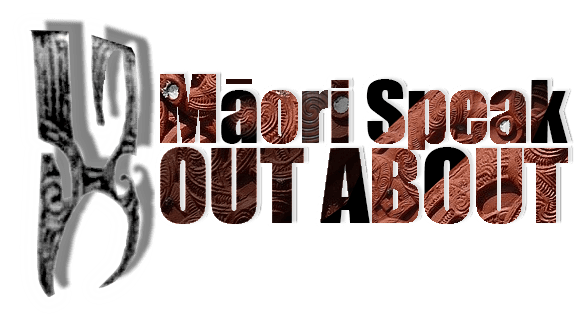End of Life Choice Act “a wrong deal for Māori”
- PRESS RELEASE OCT 2020 -
Whānau Concern.NZ
For Dominique Tamihana, reclaiming her Māori identity has led her to question the End of Life Choice Act.
“A few years ago, I wondered if euthanasia was a good thing.” says Dominique, a law student of Ngai Te Rangi and Waitaha descent at the University of Waikato. “What I have studied in the last two years has compelled me. Before I studied, I used to be ashamed to be Māori because of the things that I had experienced. And now I just have this whole new desire to help our people.”
That yearning to help has seen Dominique put her name to the website whanauconcern.nz. The site seeks to address the End of Life Choice Act referendum from a Māori perspective.
“I did a Māori paper and Tiriti o Waitangi Kaupapa, and I believe that Māori are the most disadvantaged in this Act.
“In the Treaty Paper, we learned a lot about how Māori are already marginalised in the health system. They’re not properly cared for in life; how will they be cared for when it comes to death?”
Whanauconcern.nz collects quotes from Māori who are on public record against the Act. Dame Tariana Turia, disability advocate Claire Freeman, presenter Kanoa Lloyd and Dr Shane Reti are some of the groundswell of Māori that Dominique says are speaking out.
The other half of the site has information about the Act, including tikanga Māori, how the Act compares with holistic health model Te Whare Tapa Whā and the amendments that were put forward to make the Act safer.
There’s a common theme, says Dominique. It’s all lacking.
“Many people are surprised to discover that Māori, whānau and the Treaty of Waitangi are just not acknowledged at all in the EOLC Act, despite efforts from MPs.
“The main reason that I’m against the Act is that the Act is more directed at a minority, but the risks affect the majority of people.
“There are issues about safeguards. It’s really surprising that for a doctor - there’s no test for the doctor to figure out whether there is coercion.”
Dominique asserts that the Act undermines the Treaty principles of protection, participation and partnership.
“Not requiring a witness at any point is definitely a huge one against Māori. Several overseas laws require an extra person to be present to keep everyone honest. This Act doesn’t have that.
“I really feel like the EOLC Act would affect the Māori race in general. Māori already had everything else taken, right down to autonomy, and this is signing away your actual, literal life. The chiefs, our Rangatira, they signed away the land. That is, they made a deal, and this Act is just like a deal, a whole new level of a wrong deal for Māori.”
ENDS
MEDIA RELEASE
- OCTOBER 16TH, 2020 -
WhanauConcern.NZ welcomes results from the Māori Television national Curia poll, showing that opinion on the End of Life Act referendum is on a knife-edge.
Four electorates - Hauraki-Waikato (50%), Te Tai Tokerau (51%), Waiariki (52%) and Tāmaki Makaurau (50%) - are right on the line.
The other three are fractionally higher at 57% (Te Tai Hauāuru), 60% (Te Tai Tonga) and 54% (Ikaroa-Rāwhiti) in favour, with as much as 26% of voters yet to decide.
Candidates are showing strong opposition.
In Te Tai Hauāuru, Debbie Ngarewa Packer and Adrian Rurawhe spoke decisively during the Māori Television debate for their electorate.
Whānau Concern agrees with Rurawhe; he said, "I just wonder if people are not just saying they support euthanasia or they support the bill [now an Act]. They are two different things. Most people haven't read the [Act] and don't know its content and the severity against vulnerable people".
Another Curia poll conducted on 30 September showed that up to 80% of New Zealanders were still confused about the basics of the End of Life Act.
Labour MP Rino Tirikatene and the Māori Party's Tākuta Ferris, standing in Te Tai Tonga, both oppose the legislation.
During the Maori Television debate, Ferris said, "The advice and the experience internationally across other indigenous countries is that the indigenous, the poor and the disabled come off second best. So we're not for allowing that for our people."
In Ikaroa-Rāwhiti, Māori Party's Heather Te Au Skipworth and Labour's Meka Whaitiri agree with the sentiment.
Skipworth remarked, "We're already in an inequity line in terms of health, so we're dying because we're not getting screened early enough and then we're going to euthanise our whānau, kāo."
Debbie Ngarewa Packer said, "We are whakapapa, and we protect whakapapa and I just really do implore that our whānau read the detail. There's not been enough publicity done at a level our whānau can really understand the consequences."
Readers are invited to explore whanauconcern.nz for more quotes from Māori who are concerned about the proposed law, and information about how the Act affects Māori and all New Zealanders.
ENDS
Press Releases
Māori speak out about the End of Life Choice Act in New Zealand. Referendum 2020, Assisted Suicide, Euthanasia.
Promoted by D. Tamihana, 15 Insoll Ave, Hamilton.
